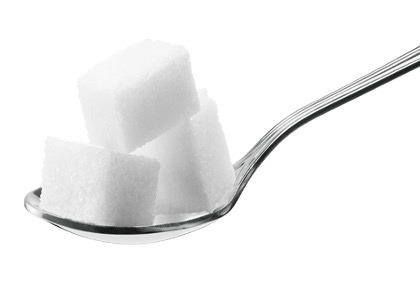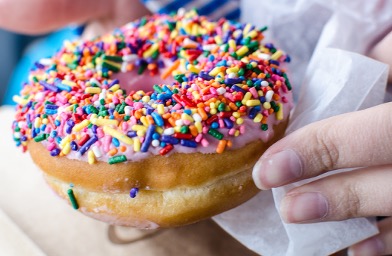
#Food #addiction #recovery is about much more than the food.
We have been ‘using’ food as drug to make us feel better. Sugars, grains and processed foods give our brains
Dopamine
Oxytocin
Serotonin
Endorphins
in unnatural amounts
The ‘feel good’ neurotransmitters.
A thread
1/8
We have been ‘using’ food as drug to make us feel better. Sugars, grains and processed foods give our brains
Dopamine
Oxytocin
Serotonin
Endorphins
in unnatural amounts
The ‘feel good’ neurotransmitters.
A thread
1/8
If we don’t learn new ways to balance these brain chemicals naturally we are more likely to relapse at times of temptation, stress, loneliness, boredom or sadness. This means building some new habits.
How will you get your daily DOSE? ⬇️
2/8
How will you get your daily DOSE? ⬇️
2/8
DOPAMINE
The neurotransmitter of motivation, reward & MORE. Drives cravings. We can get dopamine from accomplishing tasks, exercise & doing unpleasant things like a cold plunge! Listen to Anna Lembke on the food junkies or read her book for more info. foodjunkiespodcast.com/episodes/episo…
3/8
The neurotransmitter of motivation, reward & MORE. Drives cravings. We can get dopamine from accomplishing tasks, exercise & doing unpleasant things like a cold plunge! Listen to Anna Lembke on the food junkies or read her book for more info. foodjunkiespodcast.com/episodes/episo…
3/8
OXYTOCIN
Hormone of childbirth & breast feeding, also closely related to appetite & wellbeing. There are many things we can do to re-balance this system & ⬇️ stress e.g swimming, snuggling pets, hot baths. Amazing episode of the food junkies podcast: foodjunkiespodcast.com/episodes/episo…
4/8
Hormone of childbirth & breast feeding, also closely related to appetite & wellbeing. There are many things we can do to re-balance this system & ⬇️ stress e.g swimming, snuggling pets, hot baths. Amazing episode of the food junkies podcast: foodjunkiespodcast.com/episodes/episo…
4/8
SEROTONIN
The neurotransmitter involved with good mood, sleep, digestion, learning and memory. You can boost serotonin with exercise, sunshine and massage. Also high tryptophan foods like meat. What can you do more of to boost serotonin? Read more: ncbi.nlm.nih.gov/pmc/articles/P…
5/8
The neurotransmitter involved with good mood, sleep, digestion, learning and memory. You can boost serotonin with exercise, sunshine and massage. Also high tryptophan foods like meat. What can you do more of to boost serotonin? Read more: ncbi.nlm.nih.gov/pmc/articles/P…
5/8
ENDORPHINS
The body’s natural pain killers. Also linked to wellbeing and cognitive function. The most reliable way to raise them is exercise. But also a good laugh can work! How will you boost your endorphins? More advice here medicalnewstoday.com/articles/32083…
6/8
The body’s natural pain killers. Also linked to wellbeing and cognitive function. The most reliable way to raise them is exercise. But also a good laugh can work! How will you boost your endorphins? More advice here medicalnewstoday.com/articles/32083…
6/8
True recovery from food addiction is an abstinent food plan AND getting your daily DOSE of feel good neurotransmitters every day! Exercise is a good place to start especially outdoors in daylight. Read more in Fork in the Road amzn.eu/d/6uvz2l7 all profits to @PHCukorg
7/8
7/8
The final piece in the puzzle is to get support and join a community. Follow these amazing people if you don't already
@BittenJonsson
@JoanIfland
@CoachAnnaSRx
@DaveWolfeSRx
@PainschabMolly
@foodaddiction4u
@addunplug
@DoctorTro
8/8
@BittenJonsson
@JoanIfland
@CoachAnnaSRx
@DaveWolfeSRx
@PainschabMolly
@foodaddiction4u
@addunplug
@DoctorTro
8/8
• • •
Missing some Tweet in this thread? You can try to
force a refresh






